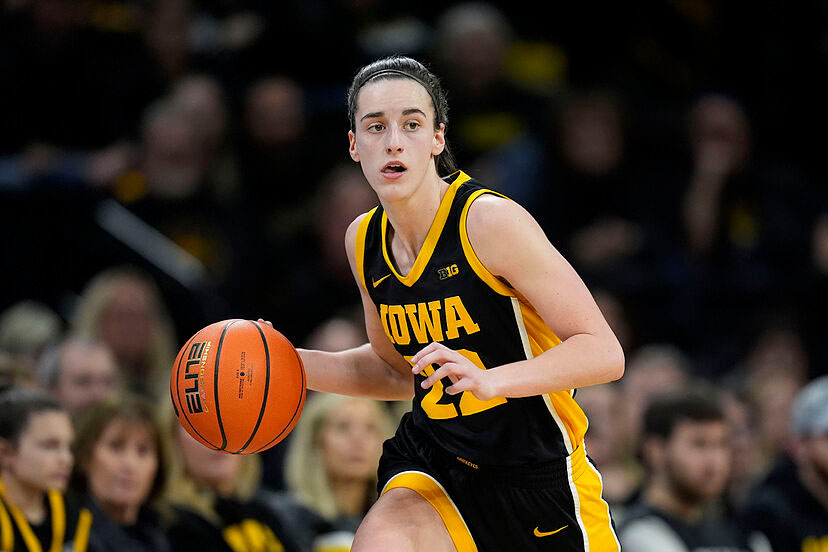
Photo Credit: Getty Images
Caitlin Clark's recent transition to the WNBA has dominated headlines this week, sparking widespread discussion not only among sports enthusiasts but also drawing attention from notable figures like President Joe Biden, who,took to X (formerly Twitter) on Tuesday, April 16, to express concern over the disparity in wages between male and female athletes. The focus on women's salaries, particularly in the WNBA, intensified after revelations that Clark, aged 22, is slated to earn a total of $338,056 over her initial four-year tenure in the league.
President Biden's remarks underscored the broader societal issue of gender pay inequity, emphasizing the need to rectify the imbalance and provide equal opportunities for women in sports. He highlighted Caitlin Clark's case as emblematic of this systemic problem, acknowledging the remarkable achievements of female athletes while lamenting the inadequate compensation they receive.
Clark, renowned as the NCAA Division I all-time leading scorer in basketball, was thrust into the limelight once again when she was selected as the No. 1 overall pick by the Indiana Fever during Monday night's WNBA Draft in Brooklyn. However, scrutiny ensued as details of her contract emerged, revealing a stark contrast to the lucrative deals often secured by male counterparts in the NBA.
Spotrac's breakdown of Clark's anticipated earnings elicited widespread criticism, with many expressing dismay over the glaring disparity in pay. In comparison, the first overall pick in last year's NBA draft, Victor Wembanyama, is projected to earn a staggering $55.7 million in his initial four years in the league, as reported by Forbes.
The stark juxtaposition between Clark's WNBA salary and that of Wembanyama prompted condemnation from various quarters, with prominent figures from both sports and entertainment industries voicing their support for equitable compensation. Pittsburgh Steelers quarterback Russell Wilson and Oscar winner Jamie Lee Curtis were among those who denounced the discrepancy, calling attention to the injustice of the situation.
While the glaring pay gap has ignited outrage, some sports commentators, including Sarah Spain and Jemele Hill, have pointed out that the variations in NBA and WNBA salaries are ultimately tied to revenue generation within each league. Spain elucidated in a social media post that the NBA's decades-long head start in building its audience and revenue streams contributes significantly to the divergence in player earnings.
















